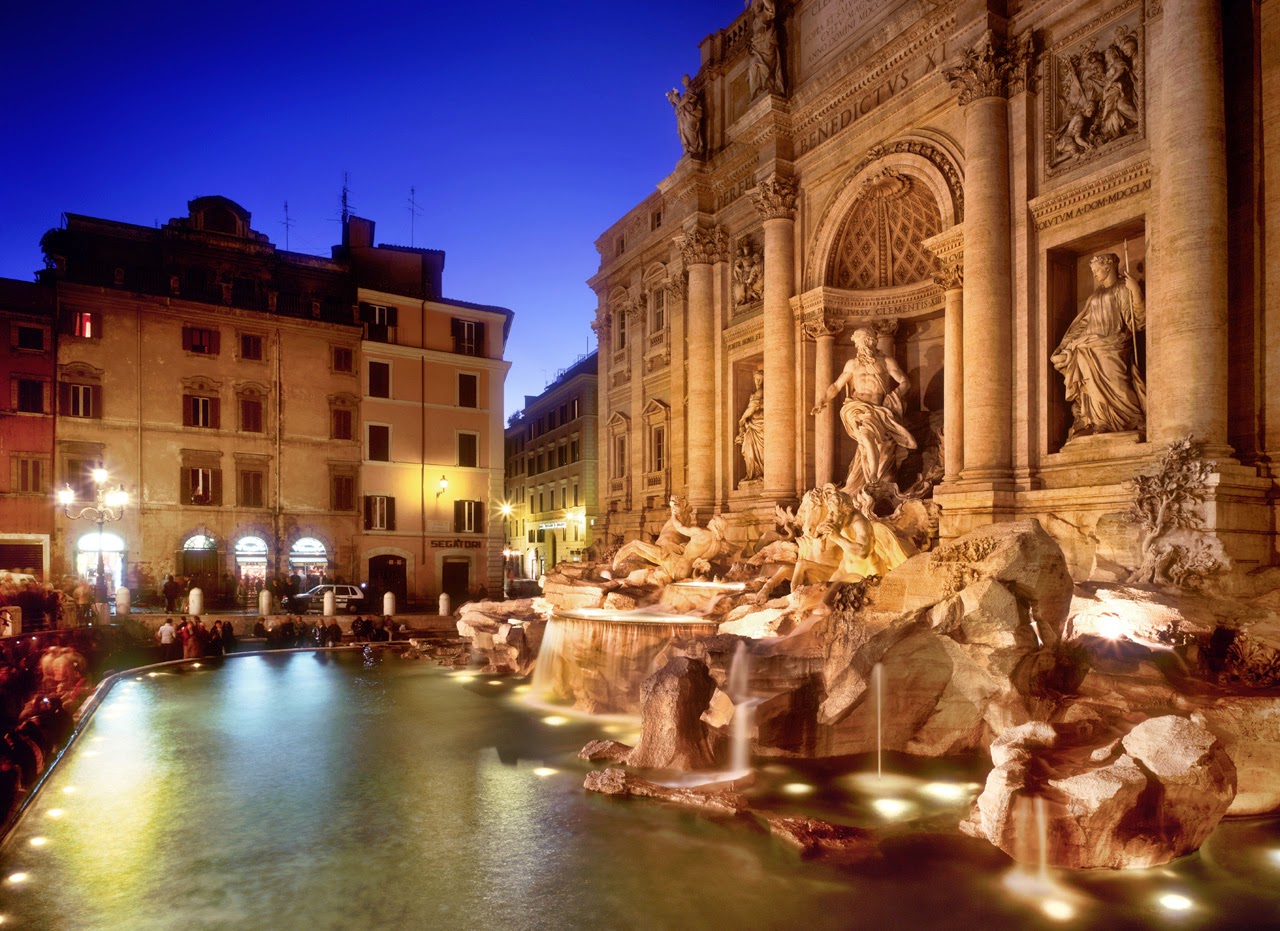#The Trevi Fountain –
depicting Neptune, the Roman god of water and the sea
AS WORKPLACES GO,
THE Trevi Fountain takes some beating. Instead of toiling in a strip-lit
office, Alessio de Filippo gets to go about his daily grind beside a Baroque
masterpiece whose extravagant beauty pulls in thousands of visitors each day.
At 7am each morning, he plugs in a blue vacuum cleaner-like
machine, attaches the hose to a long metal handle, sticks it in the azure pool
of the fountain, and starts sucking. There’s rattle and a shudder as the
hundreds of coins at the bottom of the pool start to shoot up the tube and into
the machine. Every day, some 3,000 euros are thrown over tourist’s shoulders
and into the fountain – a gesture that is supposed to ensure a return to the
Eternal City. Alessio’s job is to collect the coins each morning and sitribute
them to the Catholic charity Caritas, based in the city.
Work on the Trevi began in 1732, a relatively late addition
to the Roman tradition of building celebratory fountains. The Romans were
exceptionally good at ensuring the imperial capital was well watered, and the
aqueducts and hundreds of drinking fountains that still dot the city streets
are testament to their success. The Trevi Fountains sits at the culmination of
a 2,000-year-old underground aqueduct
that brings water from the Salone springs, 11 miles away. It shows the god of
the sea, Neptune, being pulled along by two great winged horses, one placid,
one frenzied, representing the extremes of the oceans.
In recent years though, the Trevi has hit the news for reasons
other than its beauty. Those tourist coins have proven to be an irresistible lure
for numerous Romans – in particular one man, nicknamed D’Artagnan, who
surreptitiously his hands into the flush waters. Hence the need for Alessio to
hoover up the contributions each day. ‘I’ve seen so many people try to steal coins,’
he admits, in between suctions. ‘The scandal around D’Artagnan didn’t help
either – it was shown on the TV constanly, and only helped spread the word.’ In
the months after his arrest, the
numerous copycat attempts led to the security around the fountain being upped.
The Trevi Fountain continues to be wildly popular with
visitors, but has not been without its criticts. While architect Nicola Salvi
was overseeing construction, a barber who owned a shop on the corner of the
square was a persistent critic of the design. Eventually Salvi became so
irritated that he added a large vase-like structure to one corner, so that it
blocked the view of the shop from anyone standing in front of the fountain.
Locals today have nicknamed it ‘the ace’, due to its similarity to the ace of
spades from a pack of cards.
The only time that the Trevi Fountain isn’t absolutely
packed is first thing in the morning, so to limit your chances of hitting
another visitor with your coin, try to get there as early as possible.

